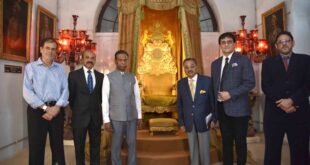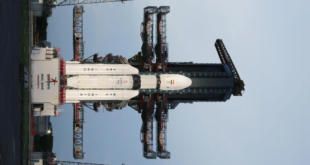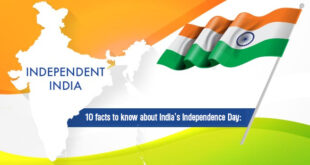In the next general elections in the UK, British Muslims constitute a swing vote to which none of the major or smaller political parties has paid any attention. Muslim voters in the UK, numbering 2 million, have the ability to swing the result, one way or the other. This is a time, which the Muslim voters should not let go away and continue to be excluded from the British political conversation any longer.
The Muslim voters turnout has been relatively low in previous elections. A parliamentary report released last month showed that voter registration amongst BAME (Black, Asian and minority ethnic) communities was only half that of the general population. It may be even lower amongst some Muslim communities.
However, if the Muslims do get out to vote, their impact could be a major one in many parts of the U.K. Research studies released by the MCB (Muslim Council of Britain), shows that both the major parties – the ruling Conservatives and the opposition Labour party – as well as niche parties like the pro-Scottish independence SNP could lose or gain seats through the Muslim vote.
There are 31 marginal seats where the Muslim electorate outnumbers the sitting member of parliament’s (MP’s) majority. For example, in Conservative-held Hendon, the ruling party’s majority is just 1,072. This is in a constituency with an estimated 8,395 eligible Muslim voters. On the other side, Labour holds Glasgow North East by just 242 votes. If just a quarter of the 1010 eligible Muslim voters were to swing to the SNP, the Scottish Nationalists would have another seat in Westminster.
But this depends on Muslims registering to vote, something that is not a given amongst all Muslim communities. It has been found that most of the Muslims in the UK, do not actively participate in the political or social processes or consultations, when required to do so. However, when they don’t have any representation in the elected bodies they bemoan that they are not represented properly or their views are never paid any attention to. It is the same as everywhere else. On Nov.22, organisations like the MCB organised the U.K.’s first ever National Muslim Voter Registration Day to encourage members of the Muslim community to prepare to exercise their democratic rights.
Many Muslims still feel excluded from the political process, which is hardly a surprise as the major parties have all but ignored the Muslim vote at the national level. Like anti-Semitism, a burnt of which is borne by the Labour party, the Conservatives are charged with Islamophobia. The Tories are accused of turning a blind eye to anti-Muslim hatred within the party’s ranks, and are refusing to hold an independent enquiry into it. In the Conservative Party, this even includes Prime Minister Boris Johnson who has, for example, compared veiled Muslim women to letterboxes – a statement that is deeply hurtful to many Muslim women who want their choice of modest dress to be understood by their fellow Brits.
However, the story of second and third generation British Muslims is slightly different. Unlike the first-generation immigrants, 50% of young Muslims are graduates, with their own political priorities. Far from being seduced by the politics of apathy or pointless protest, they know that the stakes are simply too high – for them and for the country – to not engage. They know it’s their civic duty as Brits, and their religious duty as believers, to vote.
Crucially for Westminster, the Muslim swing vote could be in either direction. Rather than being ideologically committed to one party, many Muslims are value voters – looking at all parties and candidates, and asking themselves who represents them most closely. For many Muslims, this isn’t just a “Brexit election” — particularly because they have mixed feelings about the Leave campaign.
Muslim values include democracy, justice, fairness, and tolerance; not only are they the same as the British values, but they are a mix of centre-left and centre-right ideals. With such a wide-ranging political heritage, Muslims can vote for whoever they feel best represents them. In the Dec. 12 election, it is imperative that they do so — to make their voices heard.
Meanwhile, it has emerged that a record number of women will be running in the next general election. Provisional analysis, carried out by the Press Association news agency, shows that a total of 1,120 female candidates or 34% of the total have registered as a parliamentary candidate. This is the highest-ever proportion of women candidates in a U.K. general election, up from 29% in 2017 and 26% in 2015. More than half of all Labour candidates are women, a first for a major U.K. political party. By contrast, around three in 10 of those standing for the Conservatives and the Liberal Democrats are women. There are currently a total of 3,322 candidates running in next month’s election, a slight increase over the 3,304 candidates who stood in the 2017 general election.
On the other hand, the trends point out that with a little less than three weeks to go for the elections, Boris Johnson’s Conservative Party has been extending its lead in voting intention polls. Jeremy Corbyn’s opposition Labour Party have its opinion poll rating slightly up following the first week of campaigning, but the performance has been overshadowed by the Conservative surge.
The views expressed are author’s own and may not necessarily reflect those of the publication/organization itself.
 Gawah (The Witness) – Latest News, Current Affairs, Politics, Sports, Religion, Literature, Technology, Education, National, Local – Hyderabad Telangana India World Fearless By Birth, Pristine by Choice – First National Urdu Weekly From South India – Latest News, Breaking News, Special Stories, Interviews, Islamic, World, India, National News
Gawah (The Witness) – Latest News, Current Affairs, Politics, Sports, Religion, Literature, Technology, Education, National, Local – Hyderabad Telangana India World Fearless By Birth, Pristine by Choice – First National Urdu Weekly From South India – Latest News, Breaking News, Special Stories, Interviews, Islamic, World, India, National News





